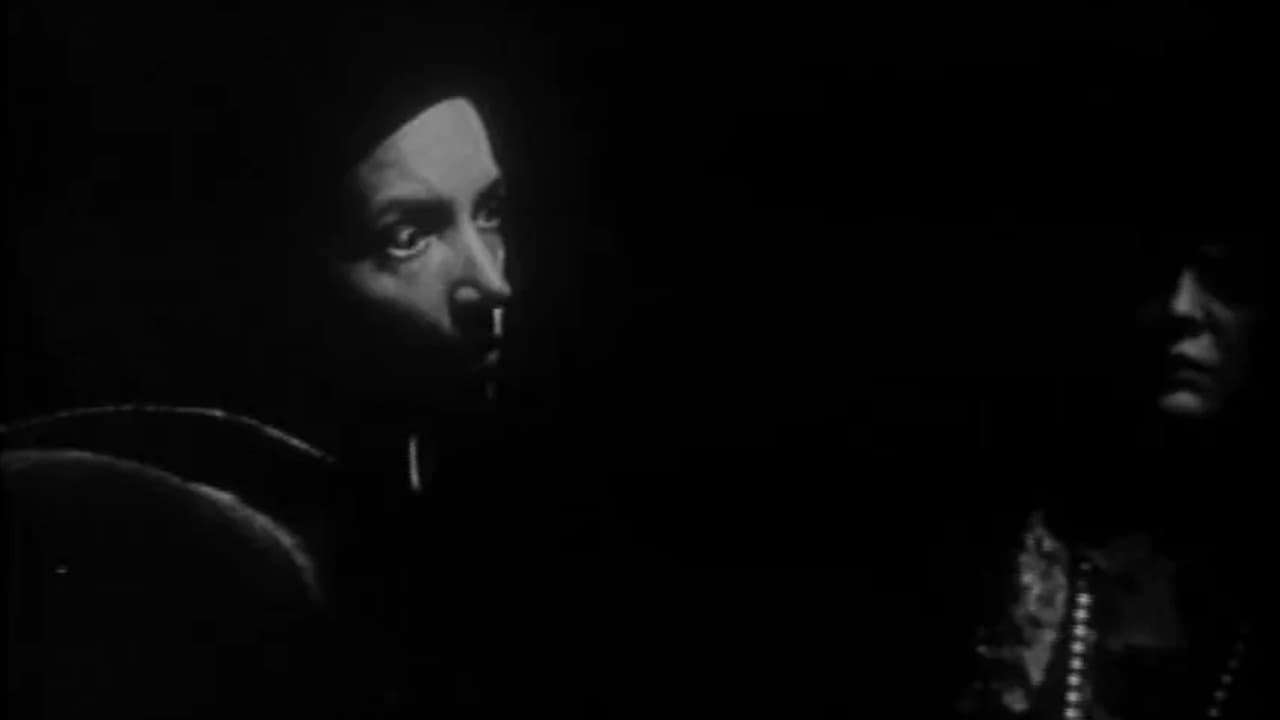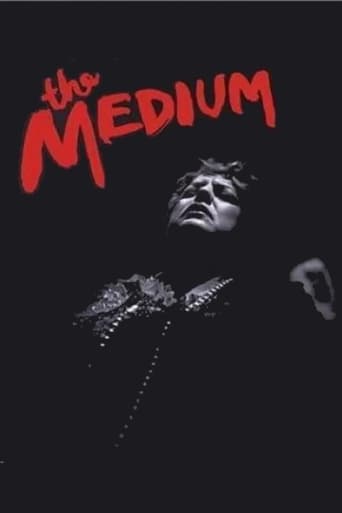

Although it has its amusing moments, in eneral the plot does not convince.
... View MoreThis is a must-see and one of the best documentaries - and films - of this year.
... View MoreI think this is a new genre that they're all sort of working their way through it and haven't got all the kinks worked out yet but it's a genre that works for me.
... View MoreA great movie, one of the best of this year. There was a bit of confusion at one point in the plot, but nothing serious.
... View MoreAmahl and the Night Visitors may be Menotti's most well-known and most performed opera, but the 1960 production of The Consul and this film version of The Medium are great examples of why those two operas deserve to be almost in the same class. It is true that this film is not The Medium that you would see staged at the opera house, that doesn't matter because it is truly outstanding in every department. And Gian-Carlo Menotti is a huge part of the film's success, being not just the composer but also the director and writer, while he is best known as a composer he shows great skill in the writing and directing departments. The film looks great with a film-noir look to it and some of it is bizarre but in a good and striking way, especially with Madame Flora's visions. The drama and staging is intelligent and grabs you right in, with a moving ending and a quite disturbing scene with Toby and Monica at the fair and with Toby being harassed. The music is just lovely and dramatic, the highlight for me has always been Monica's beautifully dark lullaby The Black Swan, rhythmically relatively simple and the hauntingly beautiful main theme will stay in your head long after but with some very awkward note intervals in the middle(even if you are a good sight reader or have absolute pitch you might still struggle). And what is so good about Menotti's writing is, as librettist, lyric-writer or script-writer, is how vivid and poetic his way of words are and the impact they have, particularly apparent in The Black Swan which with the right word painting creates some quite harrowing imagery. The story is easy to follow and has a lot of emotional power, also good in filling in the short running time with good development or not much filler, even giving more to subsidiary characters like Mrs Nolan. Menotti's directing is controlled, and the performances are really impressive apart from some too obvious lip synching(not an uncommon problem in filmed opera though actually). Like Patricia Neway in The Consul, Marie Powers is one performance you are unlikely to forget, her contralto voice is very powerfully projected and Madame Flora's tormented character is brought to life most vividly and movingly. Anna Maria Alberghetti is adorable and sings with a clear, pure tone to her soprano voice. Leo Coleman is both savage and affecting despite not saying a word. Overall, outstanding film, an example of filmed opera done really well. 10/10 Bethany Cox
... View MoreThis film certainly did not lack for admirers in its own day.It took the Cannes Award for best lyrical drama(lyrical is not exactly the best word to describe what is going on)and received BAFTA and Oscar nominations.It was a conversation piece for years after."Were you ever able to see it?" and later,"Whatever happened to Marie Powers?","Wasn't that Leo Coleman flitting through the Fellini movie?" And ,sorrowfully , it was. For this film brought together three dynamic performers, who had no where better to go cinematically. Marie Powers ,an expatriate American married to a respected but uninfluential Italian opera conductor,had a reputation as a Wagnerian interpreter among Italians who preferred Germanic opera. I have never been able to find a recording from her Italian heyday in the USA.Maybe this is not such a loss. Ms.Powers must be seen to be believed ,and this film offers the only opportunity that either the majority of her contemporaries or all of posterity has to do so.In the very late fifties or early sixties,this reviewer wandered into a lower New York Church and found he had accidentally caught the unviewable Powers live.She was playing Noah's Wife and doing it to the hilt.She could handle religious folk comedy as lightly as she had swept us along the road to damnation with Madame Flora and the hapless Romany boy,Toby.And there were perhaps two hundred locals in the audience, to whom she was giving all that the role could take.I have seen Maria Callas live and Licia Albanese.There is no question Powers stands in that world class of great singer actresses. How many such are there in any century? The two youthful co-stars give equally impressive and perfectly integrated performances.With Powers it is our loss that there simply never are enough good dramatic roles for powerhouse actresses who first come on at age fifty. The young people had different problems.Both reached the apogee of their unforgettable talents at ages fifteen and twenty-eight in their first major roles.Leo Coleman has to be seen to believed,particularly as he plays a mute to a pair of hyper-dramatic women leads.Their five minute ensemble,"Why weeps my child unborn?"must have had Val Lewton gnashing his teeth that he hadn't thought of it first.For this is great story telling as well as compelling music.In fact the script is so good I can hear some disgruntled Gothic fan complaining ,"Why did they want to slow it down with all the singing?" Composer-writer-director-photographer Menotti on this occasion assumed the Orson Welles persona very credibly.To my knowledge it would be nearly thirty years before he tried anything as ambitious a second time,a haunting televised version of his script "Vanessa " during the late seventies.But that's quite all right.It is what the last Romantics are about.
... View More